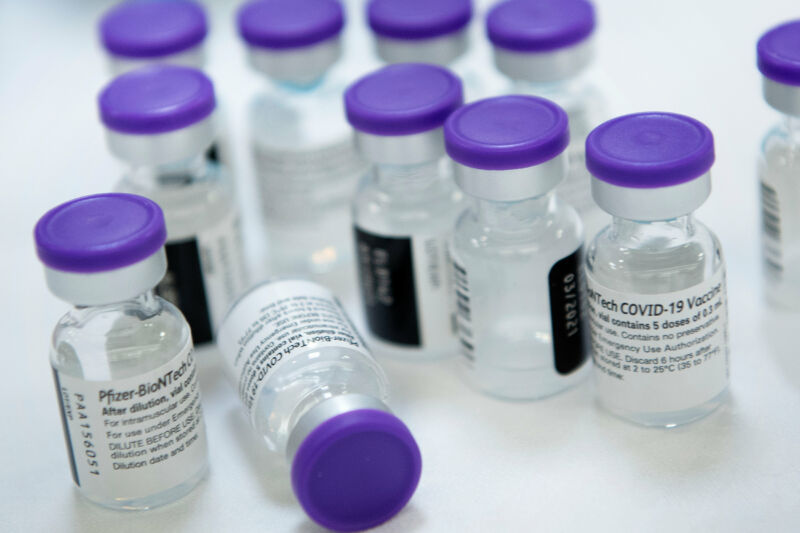
Vaccine makers are pushing back when omicron-specific COVID-19 vaccines could be ready for use. The shots were initially expected in March.
Delays in the vaccines’ development come as cases of omicron have been dropping rapidly, and several animal studies have suggested the variant-specific formulations will not offer an advantage over the current vaccines.
BioNTech CEO Uğur Şahin on Wednesday said that his company’s omicron-specific vaccine had been delayed by several weeks due to unexpectedly slow data gathering, according to Reuters. BioNTech and its COVID-19 vaccine partner, Pfizer, had announced last month that they had begun a clinical trial with the omicron-specific shot.
Meanwhile, Moderna CEO Stéphane Bancel said Wednesday that Moderna’s omicron-specific shot could now be ready by August, according to a separate Reuters report. Bancel did not provide an explanation for the slower timeline but said that the company was aiming to have the booster ready for the autumn, when he thinks more people will need a booster dose.
The slowdowns come as global cases decline and the US, in particular, is seeing a precipitous drop. US cases have fallen 68 percent in the last two weeks. Although hospitalizations and deaths are still high, those numbers are trending downward as well.
The declines have many experts and officials cautiously optimistic that the worst of the pandemic is behind us. With so many people leaving the omicron wave with protection from past infection and/or vaccination, many experts hope that omicron will be the last big COVID-19 surge.
Future boosters
Still, other experts are more wary, noting that new variants can still arise, immunity can wane over time, and seasonal upticks are not out of the question.
“If the wave ends, that does not mean it can’t begin again,” BioNTech’s Sahin said Wednesday. He noted that BioNTech is prepared to continue developing variant-specific vaccines as needed.
Moderna’s Bancel was also convinced that the pandemic isn’t over. “We believe a booster will be needed,” he said. “I don’t know yet if it is going to be the existing vaccine, omicron-only, or bivalent—[meaning] omicron and existing vaccine, two mRNA [vaccines] in one dose.”
Omicron’s dramatic rise last November and December raised immediate concern that an omicron-specific vaccine would be necessary. As the variant swept the globe, scientists were struck by the large suite of mutations it carried as well as its clear ability to thwart immune defenses built up by previous infection and current vaccines. However, data on the real-world effectiveness of vaccines made clear that three doses of current mRNA vaccines could largely restore high levels of protection from omicron, particularly from severe disease, hospitalization, and death.
At the same time, animal studies have cast doubt on whether omicron-specific vaccines, which are designed to match critical mutations in the variant, will provide better protection. In a small primate study released earlier this month, the omicron-specific booster did not offer significantly better protection from omicron than a current vaccine. The study only involved eight monkeys, but the findings were consistent with several other studies in mice, which all suggest that a single variant-specific booster will not offer slam-dunk protection against a new variant.
https://arstechnica.com/?p=1835112

